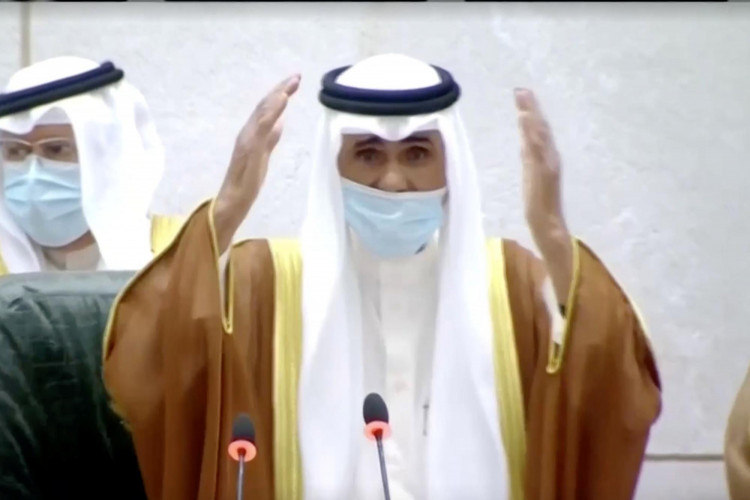Kuwait's emir Sheikh Sabah al-Ahmad Al-Sabah, creator of the country's contemporary foreign policy and intermediary in some of the major conflicts to hit the Gulf, passed away at the age of 91 on Tuesday.
The highly respected Gulf Arab statesman was laid to rest on Wednesday in funeral rites closed to the public because of coronavirus pandemic restrictions. The Kuwaiti government has declared a 40-day period of nationwide mourning.
Crown prince Sheikh Nawaf al-Ahmad al-Sabah, the emir's successor and brother, led the funeral ceremony after he was sworn in at legislature to be granted the highest post in the nation, and assuring to boost efforts for the OPEC member nation's economic growth and security.
Sheikh Sabah had governed the tiny oil producer and U.S. ally since 2006 and championed the country's foreign advocacies for over half a decade. The ruler sought to balance ties with its affluent neighbours: forming a strong bond with Saudi Arabia, reinforcing connections with former foe Iraq and maintaining an open communication line with Iran.
According to the 83-year old successor, in an address to the National Assembly, "our dear country faces difficult situations and dangerous challenges that can only be overcome ... by unifying ranks and working hard together," Reuters quoted the emir as saying.
Sheikh Nawaf served as the defence minister of Kuwait starting in 1988. He was the top military commander in 1990 when Iraqi strongman Saddam Hussein seized Kuwait and secured the country for seven months.
The emir died in the U.S. where he had been given hospital treatment after undergoing surgery in Kuwait City. Details of his sickness were not revealed.
The successor's choice of the next crown prince and prime minister – who would be responsible for overseeing Kuwait's often volatile ties with parliament – will be closely monitored, especially at a period when the government's financial coffers have been overburdened by falling oil prices and the COVID crisis.






